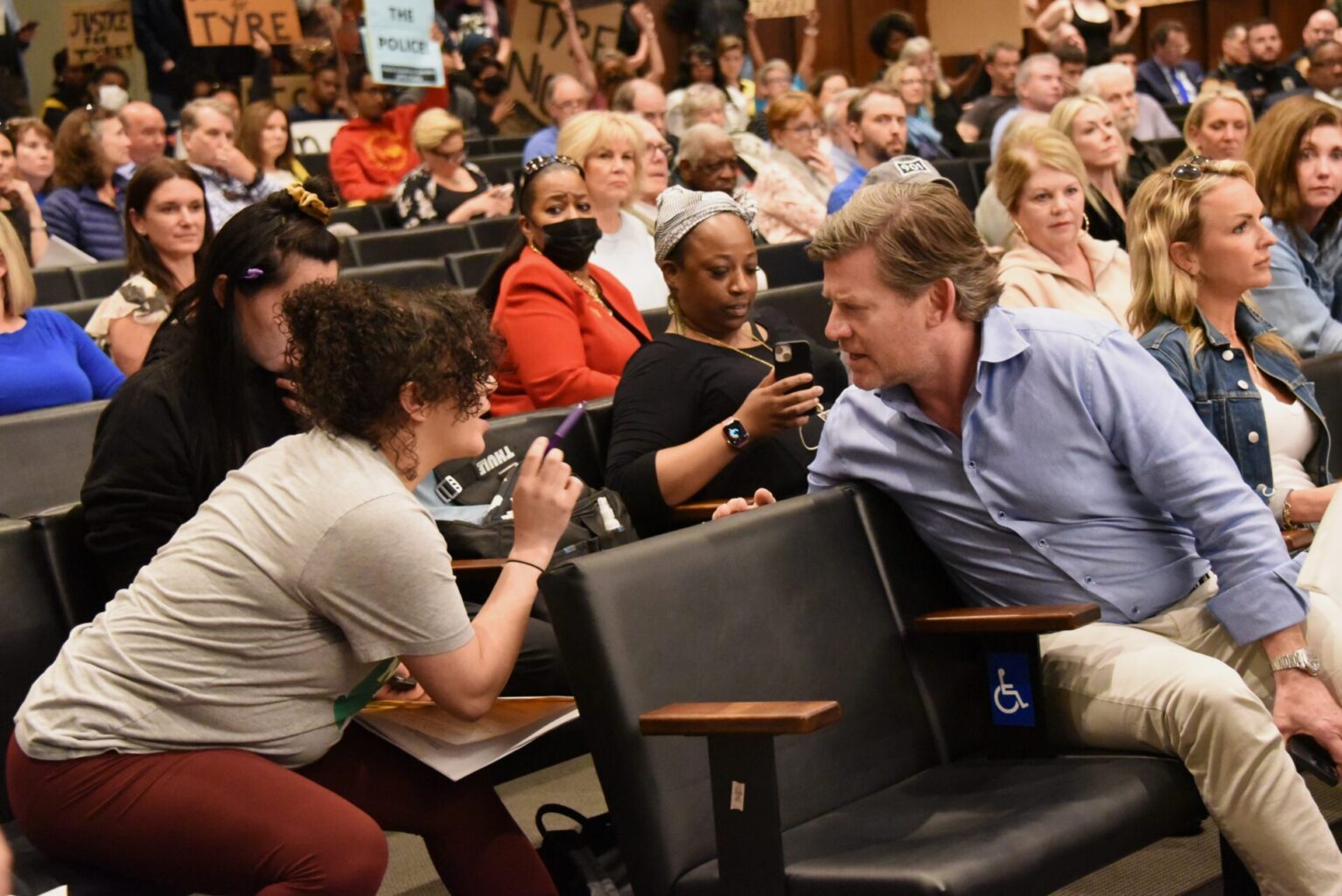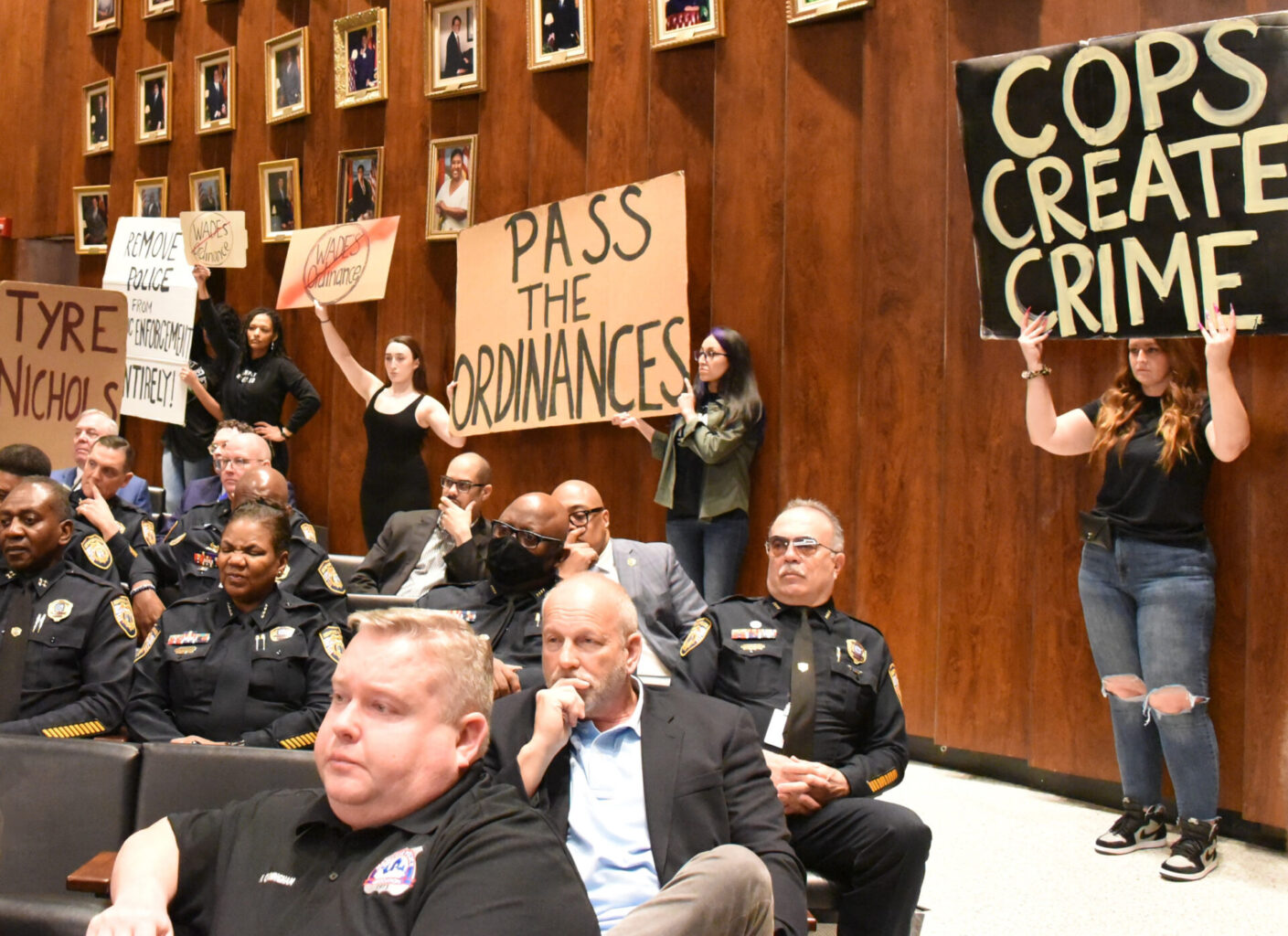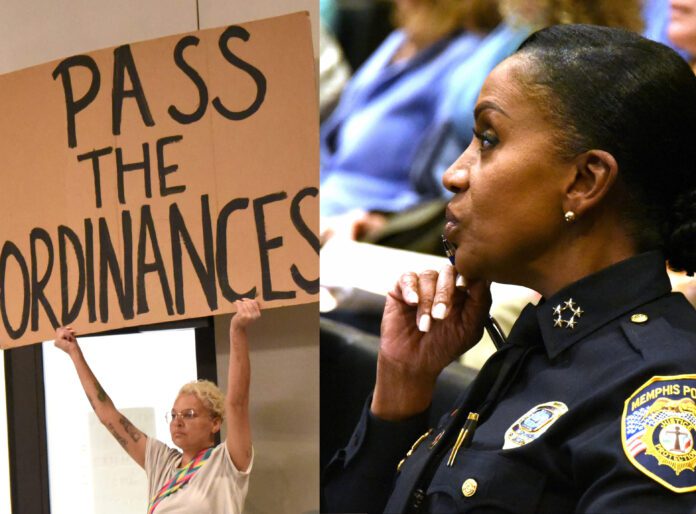Two months after the death of Tyre Nichols, Memphis City Council members on Tuesday (March 7) passed a sweeping set of reforms to overhaul policing practices, provide oversight and improve training.
The reform ordinances were passed on their third and final readings.
However, an ordinance that would have grounded pretextual stops – violations unrelated to driving, such as expired tags or a broken taillight – was tabled until the next meeting on March 21.
Its sponsor, Councilmember Michalyn Easter-Thomas, paused the item, also in its third and final reading, to clarify its language before a final vote.
Nichols, 29, was fatally bludgeoned Jan. 7 by members of a Memphis Police Department special crime-prevention unit after a traffic stop in Hickory Hill. He died Jan 10.
Passage of the ordinances came after a contentious marathon council meeting, where police-reform advocates, as they had at previous council meetings, urged passage of the ordinances.
Tuesday, however, a group of speakers, advocated for broad support of police officers, in general.

Among the issues that found broad agreement was ending traffic stops by officers in unmarked cars. Council members voted 11-1 to cease the practice, except in “exigent circumstances.”
These are defined, by amendment, as “circumstances that would cause a reasonable person to believe that prompt action was necessary to prevent imminent dangers in life or serious property damage.”
Reckless driving was offered as an example. In Tennessee, 30 mph over the speed limit meets the high end of the stop threshold. However, the low end of the threshold prompted debate.
For instance, what number above the posted limit is considered “reasonable?” Eight? Ten? Fifteen? Also, what if state law differs with the local ordinance? Memphis police are bound by state law, also.
“I think it (ordinance) does give them sufficient discretion and parameters of how to execute a traffic stop,” assured council attorney Allan Wade.
It also was pointed out that language could also be clarified or corrected in the future, when needed.
“If it turns out as we collect data that it goes one way or the other, we can always come back and tweak policies and procedures. Officers, under state law, have a duty to intervene.
“Not only in circumstances like Nichols, where they are held accountable, but when someone’s breaking the law,” said councilmember Chase Carlisle.
During the meeting, the balance council members have to strike between public safety from crime and over policing was pointed out to the activist-heavy crowd.
“We have a city right now where people are afraid. People are afraid of crime and people are afraid of the police. What we have is a city that’s scared.
“What we need is a police department that can protect us from crime and not kill us indiscriminately,’ said Councilmember Jeff Warren. “In my mind, the way they crafted this particular ordinance, we can do both.”

Nichols was stopped near his home Jan. 7 for allegedly driving recklessly. Police Chief Cerelyn “CJ” Davis, however, said there was nothing indicting he was doing so.
Offering no resistance, he was tasered and pepper sprayed. After fleeing on foot, officers caught up to him two blocks from his mother’s Hickory Hill home. For three minutes, five officers of the Memphis Police Department’s Scorpion Unit beat, tasered and peppered sprayed him.
Five officers, all African American, were fired and charged with second-degree murder and related felonies.
Council members also narrowly passed an ordinance establishing a public safety reporting protocol for recommendations by the Civilian Law Enforcement Review Board (CLERB) to the MPD, following complaints or violent use of force.
This cleared the final hurdle despite warnings of proposed legislation currently under consideration that would end civilian oversight boards, like CLERB, and empower cities to create their own advisory boards. The Tennessee NAACP opposes the legislation.
“We’ve been on the road to justice for Tyre for quite some time. I think if we bow down to our oppressors, the state, we’re doing Tyre an injustice,” said councilmember JB Smiley Jr.
The ordinance passed on a 7-3-1 vote. In favor were members Easter-Thomas, Cheyenne Johnson, Jana Swearengen-Washington, Martavius Jones, Patrice Robinson, Rhonda Logan and Smiley.
Frank Colvett, Worth Morgan and Warren voted against. Ford Canale abstained. Chase Carlisle and Edmund Ford Jr. did not vote.
Further oversight was created through the establishment of an independent review process for incidents of use of force. The MPD is also required to regularly report data on traffic stops, arrests, use of force and complaints. This will be available on a publicly accessible database.
The establishment of procedures to conduct an annual audit of all training techniques from the academy to uniformed officers met unanimous approval.
On Tuesday, the Strickland administration released a memo saying it supported only two of the ordinances – the annual review and data collection. However, the reviews would be conducted by a chosen third party and the data base wouldn’t be made publicly available, citing a lack of public desire to “see citations published.”




